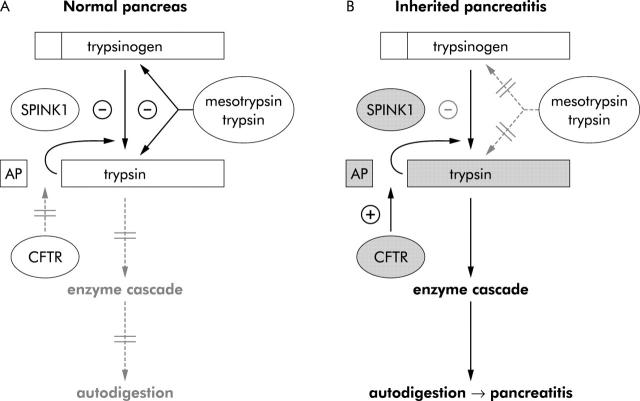Figure 1 .
Model of inherited pancreatitis. (A) Condition in the normal pancreas: trypsin resulting from autoactivation of trypsinogen within the pancreatic parenchyma is inhibited by SPINK1 and in the second line by mesotrypsin or trypsin. This defence mechanism prevents the pancreas from activation of the pancreatic enzyme cascade and autodigestion. (B) Condition in inherited pancreatitis: mutations in PRSS1 or in SPINK1 lead to an imbalance of proteases and their inhibitors within the pancreatic parenchyma resulting in an inappropriate conversion of pancreatic zymogens to active enzymes with autodigestion and inflammation. Mutations in CFTR may disturb this delicate balance by intrapancreatic acidification or by a defective apical trafficking of zymogen granules and thus facilitate the intrapancreatic activation of digestive enzymes. Dark boxes represent products of mutated genes (modified from reference 34). (AP, activation peptide).

